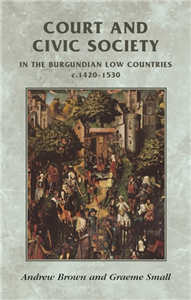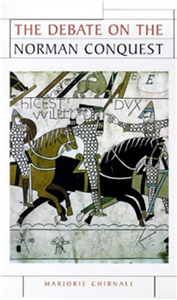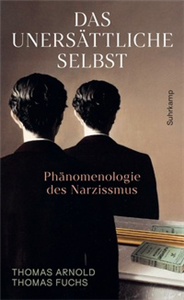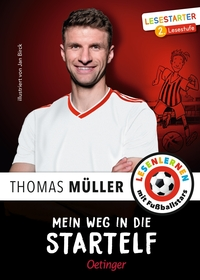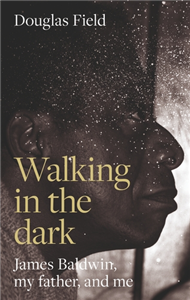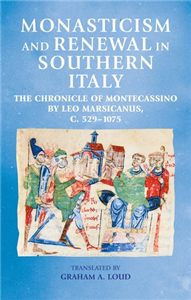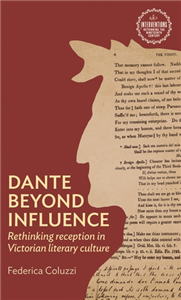Your Search Results
-
Phileas Fogg Agency
Agency representing picture books projects, Foreign rights for publishers of picture books, representation of portfolios, contract consultancies.
View Rights Portal
-
Promoted Content
-
Promoted ContentHumanities & Social SciencesNovember 2023
Rethinking Norman Italy
Studies in honour of Graham A. Loud
by Joanna Drell, Paul Oldfield
This volume on Norman Italy (southern Italy and Sicily, c. 1000-1200) honours and reflects the pioneering scholarship of Graham A. Loud. An international group of scholars reassesses and recasts the paradigm by which Norman Italy has been conventionally understood, addressing varied subjects across four key themes: historiographies, identities and communities, religion and Church, and conquest. The chapters revise and refine our understanding of Norman Italy in the eleventh and twelfth centuries, demonstrating that it was not just a parochial Norman or Mediterranean entity but also an integral player in the medieval mainstream.
-
 Trusted Partner
Literature & Literary StudiesJanuary 2014
Trusted Partner
Literature & Literary StudiesJanuary 2014Court and civic society in the Burgundian Low Countries c.1420–1530
by Andrew Brown, Graeme Small
This volume is the first ever attempt to unite and translate some of the key texts which informed Johan Huizinga's famous study of the Burgundian court, The Waning of the Middle Ages, a work which has never gone out of print. It combines these texts with sources that Huizinga did not consider, those that illuminate the wider civic world that the Burgundian court inhabited and the dynamic interaction between court and city. Through these sources, and an introduction offering new perspectives on recent historiography, the book tests whether Huizinga's controversial vision of the period still stands. Covering subjects including ceremonial events, such as the spectacles and gargantuan banquets that made the Burgundian dukes the talk of Europe, the workings of the court, and jousting, archery and rhetoric competitions, the book will appeal to students of late medieval and early modern Europe and to those with wider interests in court culture, ritual and ceremony.
-
 Trusted Partner
Humanities & Social SciencesJune 2021
Trusted Partner
Humanities & Social SciencesJune 2021Rethinking Norman Italy
by Joanna Drell, Paul Oldfield, C. E. Beneš
-
 Trusted Partner
Literature & Literary StudiesNovember 2007
Trusted Partner
Literature & Literary StudiesNovember 2007Court and civic society in the Burgundian Low Countries c.1420–1520
by Andrew Brown, Graeme Small, Rosemary Horrox, Simon Maclean
This volume is the first ever attempt to unite and translate some of the key texts which informed Johan Huizinga's famous study of the Burgundian court, The Waning of the Middle Ages, a work which has never gone out of print. It combines these texts with sources that Huizinga did not consider, those that illuminate the wider civic world that the Burgundian court inhabited and the dynamic interaction between court and city. Through these sources, and an introduction offering new perspectives on recent historiography, the book tests whether Huizinga's controversial vision of the period still stands. Covering subjects including ceremonial events, such as the spectacles and gargantuan banquets that made the Burgundian dukes the talk of Europe, the workings of the court, and jousting, archery and rhetoric competitions, the book will appeal to students of late medieval and early modern Europe and to those with wider interests in court culture, ritual and ceremony. ;
-
 Trusted Partner
Humanities & Social SciencesJune 1999
Trusted Partner
Humanities & Social SciencesJune 1999The debate on the Norman Conquest
by Marjorie Chibnall, Roger Richardson
The debate on the Norman Conquest is still ongoing. Because of the great interest that has always been shown in the subject of conquest and its aftermath, interpretations have been numerous and conflicting; students bewildered by controversies may find this book a useful guide through the morass of literature. In the medieval period writers were still deeply involved in the legal and linguistic consequences of the Norman victory. Later the issues became direcly relevant to debates about constitutional rights; the theory of a "Norman yoke" provided first a call for revolution and, by the 19th century, a romantic vision of a lost Saxon paradise. When history became a subject for academic study controversies still raged round such subjects as Saxon versus Norman institutions. These have gradually been replaced in a broader social setting where there is more room for consensus. Interest has now moved to such subjects as peoples and races, frontier societies, women's studies and colonialism. Changing perspectives have shown the advantage of studying a period from the late 10th to the early 13th century rather than one beginning in 1066. ;
-
 Trusted Partner
March 2026
Trusted Partner
March 2026Das unersättliche Selbst
Phänomenologie des Narzissmus
by Thomas Arnold, Thomas Fuchs
Narzissmus ist allgegenwärtig – als Modewort, moralischer Vorwurf, Gesellschaftsdiagnose oder klinischer Befund. Doch was verbirgt sich dahinter? Und warum sind narzisstische Menschen nicht zufriedenzustellen – unersättlich? Thomas Arnold und Thomas Fuchs entwerfen in ihrem grundlegenden Buch eine neue, phänomenologisch-existenziale Sicht des Narzissmus. Das narzisstische Selbst- und Weltverhältnis erweist sich hier als Ausdruck einer existenziellen Leere: eines leiblich gespürten Mangels an Selbstwert, der durch äußere Bestätigung, Attraktivität oder Macht nie dauerhaft gestillt werden kann. Zugleich ist der Narzissmus ein Spiegel der spätmodernen Seele, und gerade in einer Kultur der Individualisierung – von Social Media bis Therapie, von Echo bis Instagram – gilt es zu verstehen, warum Bestätigung von außen niemals satt macht. Arnold und Fuchs führen philosophische, soziologische, psychologische und psychodynamische Erkenntnisse zusammen, um zu einem tieferen Verständnis für die Strukturen narzisstischer Subjektivität in Individuum und Gesellschaft zu gelangen. Gibt es auch gesunden Narzissmus? Wieso sind echte Begegnungen für Narzissten so schwierig? Und was haben Virtualität, Verschwörungstheorien und extreme Politik mit Narzissmus zu tun? Ein hochaktuelles Buch, das uns den Spiegel vorhält.
-
 Trusted Partner
Humanities & Social SciencesApril 2020
Trusted Partner
Humanities & Social SciencesApril 2020Early modern war narratives and the Revolt in the Low Countries
by Raymond Fagel, Leonor Álvarez Francés, William G. Naphy, Beatriz Santiago Belmonte
-
 Trusted Partner
Literature & Literary StudiesJanuary 2013
Trusted Partner
Literature & Literary StudiesJanuary 2013The lives of Thomas Becket
by Michael Staunton
This collection tells the story of Thomas Becket's turbulent life, violent death and extraordinary posthumous acclaim in the words of his contemporaries. The only modern collection from the twelfth-century Lives of Thomas Becket in English and features all his major biographers, including many previously untranslated extracts. Providing both a valuable glimpse of the late twelfth-century world, and an insight into the minds of those who witnessed the events. By using contemporary sources, this book is the most accessible way to study this central episode in medieval history. Thomas Becket features prominently in most medieval core courses. This book allows the subject to be taught as never before, and is highly suitable as a set text.
-
 Trusted Partner
Humanities & Social SciencesMarch 2017
Trusted Partner
Humanities & Social SciencesMarch 2017The French empire at War, 1940–1945
by Martin Thomas
The French empire at war draws on original research in France and Britain to investigate the history of the divided French empire - the Vichy and the Free French empires - during the Second World War. What emerges is a fascinating story. While it is clear that both the Vichy and Free French colonial authorities were only rarely masters of their own destiny during the war, preservation of limited imperial control served them both in different ways. The Vichy government exploited the empire in an effort to withstand German-Italian pressure for concessions in metropolitan France and it was key to its claim to be more than the mouthpiece of a defeated nation. For Free France too, the empire acquired a political and symbolic importance which far outweighed its material significance to the Gaullist war effort. As the war progressed, the Vichy empire lost ground to that of the Free French, something which has often been attributed to the attraction of the Gaullist mystique and the spirit of resistance in the colonies. In this radical new interpretation, Thomas argues that it was neither of these. The course of the war itself, and the initiatives of the major combatant powers, played the greatest part in the rise of the Gaullist empire and the demise of Vichy colonial control.
-
 Trusted Partner
April 2019
Trusted Partner
April 2019Mein Weg in die Startelf
Lesestarter. 2. Lesestufe
by Thomas Müller, Julien Wolff, Jan Birck
"Mein Weg in die Startelf" von Thomas Müller schildert die motivierende Geschichte des jungen Thomas Müller, der seinen Platz in der ersten Mannschaft des renommierten FC Bayern München erkämpft. Mit nur zehn Jahren beginnt seine Reise, die von der Ersatzbank startet und durch unermüdliches Training und die Ermutigung seines Teamkollegen Martin zu seiner ersten großen Chance führt. Dieses Buch ist perfekt für Leseanfänger zwischen 7 und 9 Jahren, die durch Thomas Müllers echte Erfahrungen sowohl die Freuden als auch die Herausforderungen des Fußballs kennenlernen. Die Geschichte ist angereichert mit vielen Illustrationen im Comicstil, großen Schriftarten und kurzen Textabschnitten, die das Lesen erleichtern. Zusätzlich enthält es 16 Seiten mit Leserätseln und Spielen, die das Verständnis vertiefen und die Handlung lebendig machen. Gelistet bei Antolin. Förderung der Lesebegeisterung: Speziell für junge Fußballfans konzipiert, die durch die spannende Geschichte von Thomas Müller zum Lesen motiviert werden. Bildungsreich und unterhaltsam: Enthält Spiele und Rätsel, die das Gelesene vertiefen und gleichzeitig Spaß machen. Visuell unterstütztes Lernen: Große Schrift und zahlreiche Illustrationen helfen jungen Leser*innen, den Text leichter zu verstehen und fördern das Interesse am Lesen. Reale Vorbildfunktion: Thomas Müllers Geschichte inspiriert Kinder, durch Anstrengung und Ausdauer ihre Träume zu verfolgen. Ideal für Sportbegeisterte: Verbindet die Leidenschaft für Fußball mit dem Lesenlernen und macht beide Aspekte ansprechend für junge Leser.
-
 Trusted Partner
Trusted Partner
-
 Trusted Partner
Trusted Partner
-
 Trusted Partner
Biography & True StoriesNovember 2024
Trusted Partner
Biography & True StoriesNovember 2024Walking in the dark
James Baldwin, my father and I
by Douglas Field
A moving exploration of the life and work of the celebrated American writer, blending biography and memoir with literary criticism. Since James Baldwin's death in 1987, his writing - including The Fire Next Time, one of the manifestoes of the Civil Rights Movement, and Giovanni's Room, a pioneering work of gay fiction - has only grown in relevance. Douglas Field was introduced to Baldwin's essays and novels by his father, who witnessed the writer's debate with William F. Buckley at Cambridge University in 1965. In Walking in the dark, he embarks on a journey to unravel his life-long fascination and to understand why Baldwin continues to enthral us decades after his death. Tracing Baldwin's footsteps in France, the US and Switzerland, and digging into archives, Field paints an intimate portrait of the writer's life and influence. At the same time, he offers a poignant account of coming to terms with his father's Alzheimer's disease. Interweaving Baldwin's writings on family, illness, memory and place, Walking in the dark is an eloquent testament to the enduring power of great literature to illuminate our paths.
-
 Trusted Partner
October 2024
Trusted Partner
October 2024Witches of New London 2. Moonblessed
by Isabel Clivia, Yesim Meisheit, Anne Hruby, Speak Low Verlag und Medien, Thomas Schlück GmbH
Finde die Wahrheit in einem Netz aus Lügen Obwohl Reva einer Verschwörung innerhalb der Elite von New London auf die Spur gekommen ist, konnte sie den wahren Verantwortlichen für die Mordserie in der Menschenwelt nicht finden. Weil die Unruhen in der Hexengesellschaft immer größer werden, kehrt sie auf der Suche nach Antworten in ihre magische Heimat zurück. Inmitten rauschender Feste muss sie erkennen, wer Freund und wer Feind ist. Dabei sind ihre heimlichen Gefühle für Gabriel alles andere als hilfreich. Insbesondere, da er fest davon überzeugt ist, seine Pflichten als Frühlingserbe erfüllen zu müssen. Doch nicht nur ihre verbotene Sehnsucht erschwert die Ermittlungen, sondern auch die wachsende Dunkelheit in ihr selbst. Ein Wettlauf mit der Zeit beginnt, bei dem sie alles verlieren könnte …
-
 Trusted Partner
Humanities & Social SciencesFebruary 2026
Trusted Partner
Humanities & Social SciencesFebruary 2026Monasticism and renewal in southern Italy
The Chronicle of Montecassino by Leo Marsicanus, c. 529–1075
by Graham Loud
The chronicle of Leo Marsicanus recounts the history of the abbey of Montecassino from its foundation by St. Benedict in the sixth-century up to 1075. It presents a detailed and compelling story of tribulation and renewal, with the abbey twice destroyed and abandoned in the early Middle Ages and then rebuilt. It concludes with an informative account of the building and dedication of the new abbey church by Abbot Desiderius in 1066-71. The chronicle is also a key source for the more general history of southern Italy in the early Middle Ages, and of the conquest of the region by the Normans during the eleventh century. In addition, Montecassino was one of the great intellectual centres of western Christendom and a major contributor to the reform movement within the Church during the later eleventh century. Leo's chronicle is a crucial witness to that role.
-
 Trusted Partner
December 2009
Trusted Partner
December 2009Der Briefwechsel Thomas Bernhard/Siegfried Unseld
by Thomas Bernhard, Siegfried Unseld, Raimund Fellinger, Martin Huber, Julia Ketterer
30 Jahre alt, ohne Resonanz auf seine bis dahin veröffentlichten drei Gedichtbände, vom eigenen überragenden schriftstellerischen Können allerdings überzeugt, schreibt Thomas Bernhard im Oktober 1961 an Siegfried Unseld: "Vor ein paar Tagen habe ich an Ihren Verlag ein Prosamanuskript geschickt. Ich kenne Sie nicht, nur ein paar Leute, die Sie kennen. Aber ich gehe den Alleingang." Obwohl der Suhrkamp Verlag das Manuskript ablehnte, gingen der Alleingänger und der Verleger seit dem Erscheinen von Bernhards erstem Roman "Frost" 1963 gemeinsam den Weg, der den Autor in die Weltliteratur führte. In den etwa 500 Briefen zwischen beiden entwickelt sich ein einzigartiges Zwei-Personen-Schauspiel: Mal ist es eine Tragödie, wenn etwa Bernhard die aus seinen Werken bekannten Schimpftiraden auf den Verleger losläßt, der seinerseits auf die Überzeugungskraft des Arguments setzt. Dann gibt Bernhard ein Kammerspiel mit Unseld als Held – 1973 schreibt er ihm: "mit grösster Aufmerksamkeit, mit allen Möglichkeiten, gehe ich gern mit Ihnen." 1984 agieren beide, bei der Beschlagnahme von "Holzfällen", als Kämpfer für die Literatur in einem von Dritten inszenierten Schurkenstück. Es dominiert das Beziehungsdrama: Der Autor stellt die für sein Werk und seine Person unabdingbaren Forderungen. Der Verleger seinerseits weiß, daß gerade bei Bernhard rücksichtslose Selbstbezogenheit notwendige Voraussetzung der Produktivität ist. Solch einen dramatischen Briefwechsel zwischen Autor und Verleger, in dem bei jeder Zeile alles auf dem Spiel steht, kennt das Publikum bislang nicht.
-
 Trusted Partner
May 2024
Trusted Partner
May 2024Meine Fußballgeschichten. Alle 3 Bände in einem Buch
by Thomas Müller, Julien Wolff, Michael Vogt, Jan Birck
Volltreffer: Geballte Fußball-Action von und über Weltstar Thomas Müller. Als Kind hat Thomas Müller einen großen Traum: Er möchte für seinen Lieblingsverein, dem großen FC Bayern München, spielen. Er trainiert fleißig in der Mannschaft seines Heimatdorfes und schießt ein Tor nach dem anderen – bis er tatsächlich entdeckt wird! Doch nun muss er es noch in die Startelf schaffen, um endlich auch Tore für seinen Traumverein machen zu können. Von der Entdeckung bis zur ersten Meisterschaft – Thomas Müllers Weg zu den Profis motiviert Leseanfänger*innen am Ball zu bleiben. Drei Geschichten in einem Band voller Fußball-Action! Meine Fußballgeschichten. Alle 3 Bücher von Thomas Müller jetzt in einem Band. Vom Dorfverein zum Fußballprofi: über den spannenden Weg von Thomas Müller zu seinem Traumverein. Mit Spaß und Humor und ganz viel Liebe zum Fußball: Ein tolles Geschenk für alle Mädchen und Jungs, die gar nicht genug vom runden Leder bekommen. Der praktische Sammelband mit allen bisher erschienenen Kinderbüchern von Thomas Müller – pünktlich zur EM 2024 in Deutschland! Lesenlernen mit Thomas Müller: Mit coolen Illustrationen im Comic-Stil und einer einfachen Sprache geschrieben, sind die „Fußballgeschichten“ das perfekte Buch für leseschwache, aber fußballbegeisterte Erstleser*innen ab 7 Jahren. Er ist nicht nur auf dem Fußballplatz ein Erfolgsgarant: Thomas Müller. In den Büchern über seinen persönlichen Werdegang zeigt der Fußballprofi, dass Übung den Meister macht – auch beim Lesen! In diesem Sammelband sind alle drei Lesestarter-Bücher enthalten: Band 1: Mein Weg zum Traumverein Band 2: Mein Weg in die Startelf Band 3: Meine erste Meisterschaft
-
 Trusted Partner
Literature & Literary StudiesNovember 2021
Trusted Partner
Literature & Literary StudiesNovember 2021Dante beyond influence
Rethinking reception in Victorian literary culture
by Federica Coluzzi, Anna Barton
Dante beyond influence is the first study to conceptualise and historicise the hermeneutic turn in Dante reception history and Victorian cultural history, charting its development across intellectual realms, agents and forms of readerly and writerly engagement. Unearthing previously unseen manuscript and print evidence, the book conducts a material and book-historical inquiry into the formation and popularisation of the critical and scholarly discourse on Dante through Victorian periodicals, mass-publishing, traditional and Extramural higher education. The book demonstrates that the transformation of Dante from object of amateur interest (dantophilia) to subject of systematic interpretive endeavours (dantismo) reflected paradigmatic changes in Victorian intellectual and socio-cultural history.
-
 Trusted Partner
Trusted Partner








